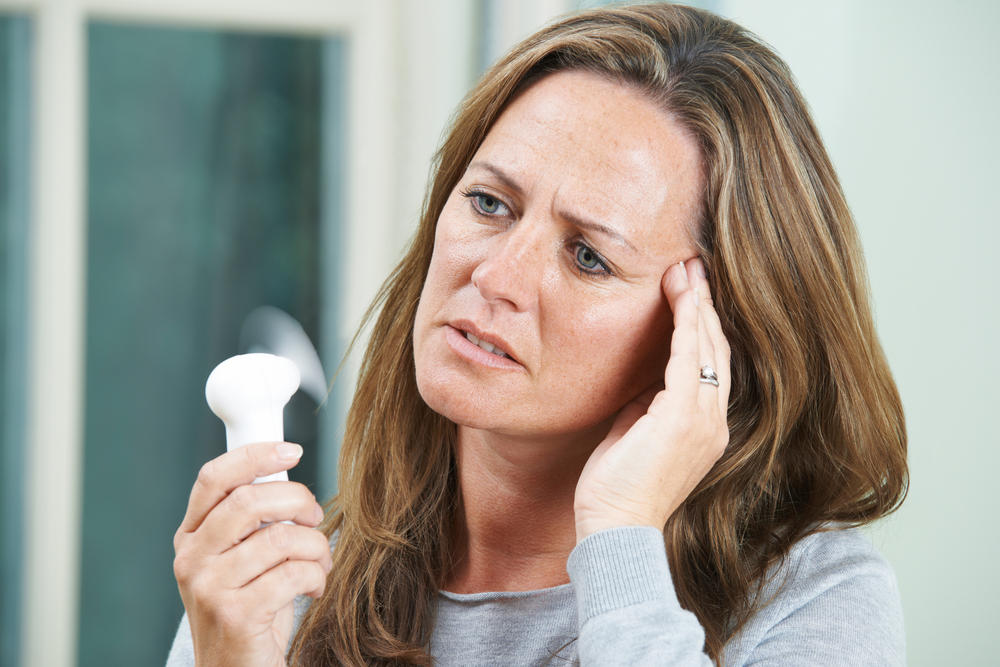Work can be stressful enough without adding the misery of menopausal symptoms into the picture.
Editor Jane Garton explores how to get on top of symptoms in the workplace.
You may still be working from home but if you are one of the women who has ventured back into the workplace and going through the perimenopause or menopause, life can difficult.
Hot flushes can make you self-conscious and distracted. Forgetfulness and confusion can mean you don’t feel as sharp as you used to, while night sweats can affect your sleep so you may struggle to get going in the morning. A lack of understanding from bosses and fellow workers can make it tougher to the extent that studies show one in four women actually consider leaving work because they’re not getting the support they need[i].
But it’s not all bad news. More and more employers are starting to realise the importance of understanding the menopause and offering support. There are also things you can do to make things easier yourself.
Here are some top tips on how to manage common symptoms.
Hot flushes

Keep hydrated by always having a water bottle on your desk and take one into meetings. Invest in a desk mini fan and sit near a window that opens if possible. Wear layers of clothes you can take off if the going gets hot.
Forgetfulness

List things you need to remember – using your mobile or tablet may help. And don’t think you have to be a multi-tasker. It’s ok to tackle one task at a time. The herbal remedy rhodiola may help to boost concentration on the task in hand.
Poor sleep

Talk to your line manager or HR department about working flexible hours. A later start and finish time can help. Not possible? Take a break in the middle of the day. Five to 10 minutes away from your desk can improve concentration dramatically. If sleepless nights continue to be a problem the soothing herb valerian is worth a try. Some studies show that valerian reduces the time it takes to fall asleep and improves the quality of sleep.
Anxiety and depression

Take advantage of employer assistance programmes. Counselling may be available so discuss opportunities with HR or your line manager. Mindfulness, breathing techniques, meditation and cognitive behavioural therapy are also worth considering.
Talk about it

Explaining why you are feeling the way you do to your line manager and colleagues puts them in a better position to help you. For example, if you find your work environment too noisy, too cramped or too warm let them know; they may be able to do something about it.
If a colleague is going through the menopause and wants to talk don’t judge them by your or your mum’s experiences. Everyone’s menopause is different and affects them differently. You are not expected to be an expert. Just listen to them as you would to any other problem.
Try a multivitamin

Taking a good multivitamin and mineral designed specifically for this time of life will ensure you get a bit of everything. It should include good levels of antioxidants like vitamin A and vitamin E plus the minerals zinc and selenium (to help slow the ageing process). B vitamins can help reduce feelings of stress and boost energy, whilst vitamin D3, Calcium, magnesium and boron are all good for bone health. Chromium is another mineral to look out for as it helps balance blood sugar.
Go herbal

Herbal remedies are another good natural alternative for managing symptoms. Good choices include soya isoflavones, black cohosh, sage leaf extracts, dong quai and red clover. St John’s wort may help to lift the spirits.
World Menopause day is on October 18th. For more advice visit the menopause support website.
[i] https://www.healthawareness.co.uk/menopause/1-4-of-women-have-considered-leaving-their-job-because-of-the-menopause/
























Add comment